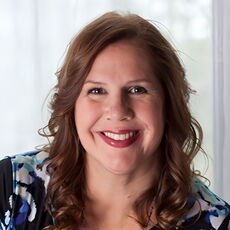
Processing Your Payment
Please do not leave this page until complete. This can take a few moments.
- News
-
Editions
View Digital Editions
Biweekly Issues
- December 1, 2025
- Nov. 17, 2025
- November 03, 2025
- October 20, 2025
- October 6, 2025
- September 22, 2025
- + More
Special Editions
- Lists
- Viewpoints
-
Our Events
Event Info
Award Honorees
- Calendar
- Biz Marketplace
How to set up what parents will need to age in place
For millions of adult children, the challenges of meeting aging parents’ health and care needs can be complex. While assisted living facilities and nursing homes were once considered the default path, alternatives such as companion care and innovative models of home caregiving support can make the dream of many seniors to remain in the comfort and familiarity of their homes possible.

Adult children or spouses of aging loved ones desiring to age-in-place can take fundamental steps as a starting point. Being prepared to reassess evolving needs and adjust accordingly is critical to a successful strategy and experience for individuals and their families.
Solutions for aging in place
1. Take a holistic approach: Ensuring a holistic view that supports the highest levels of health, quality of life and independence is an essential first step. Understanding the mind-body connection is vital, particularly for aging adults. Research has linked social isolation to increased risk of heart disease, stroke, dementia, depression and premature mortality. The risk of isolation increases as adults weather retirement, loss of mobility and the passing of friends and family. Social engagement is as important as regular movement, physical activity and proper nourishment.
2. Improve home safety: Assessing seniors’ homes and living areas for safety is vital. Actions such as installing grab bars in bathrooms, improving lighting, removing tripping hazards and adding non-slip surfaces can reduce the risk of falls, which are among the leading causes of serious injury and death for the elderly. Home modifications should be tailored to an individual’s needs, abilities and limitations and ideally determined by an occupational therapist. Installation of stair lifts or ramps for mobility challenges, lever-style door handles for those with arthritic conditions and shower seats for bathing safety may be required. Ensure your parents, family and private duty caregivers receive proper training on mechanical aids, such as stair lifts, to avoid potential injury.
3. Manage health and medications: Whether your loved one currently requires medications or prescribed treatments, outlining a clear plan and processes for ensuring proper medication management and cohesive care is essential. Implement medication management systems such as pill organizers, automatic dispensers or pharmacy delivery services to ensure proper adherence. Regular health screenings, preventive care and chronic disease management are also crucial.
4. Use technology: Medical alert systems, fall-detection devices and smart home monitoring are effective tools. Options such as video calling systems can help maintain connections and reduce isolation.
5. Offer social support: Develop a network of family members, trusted neighbors, friends, and community organizations who can provide regular check-ins and interaction. Many communities offer senior centers, visitor programs, meal delivery and transportation services for seniors. Helping your loved one remain connected through faith communities, hobby groups, and volunteer opportunities can provide meaningful social engagement.
6. Plan finances and care: Aging in place often requires significant financial investment in home modifications, healthcare services, and support systems. Consult professionals to understand insurance coverage options, including Medicare benefits, long-term care insurance and other resources. Seek guidance from geriatric care managers who can coordinate services, monitor changing needs and advocate for healthcare and insurance within a comprehensive care plan.
Successfully supporting parents who want to age in place requires proactive planning, consulting with experts in geriatric home care, maintaining a holistic view and understanding that needs will evolve. Taking steps to support seniors in fulfilling their desire to remain in their homes can provide the dignity and independence they desire and adult children with peace of mind about their parents’ safety, quality of life and well-being.
Leah Doroch is founder and CEO of Perfect Care Match, a full-service holistic home care agency. She can be reached at: Leah.Doroch@professionalcarematch.com
Mainebiz web partners

The Giving Guide
The Giving Guide helps nonprofits have the opportunity to showcase and differentiate their organizations so that businesses better understand how they can contribute to a nonprofit’s mission and work.
Learn More
Work for ME
Work for ME is a workforce development tool to help Maine’s employers target Maine’s emerging workforce. Work for ME highlights each industry, its impact on Maine’s economy, the jobs available to entry-level workers, the training and education needed to get a career started.
Learn More
Groundbreaking Maine
Whether you’re a developer, financer, architect, or industry enthusiast, Groundbreaking Maine is crafted to be your go-to source for valuable insights in Maine’s real estate and construction community.
Learn more-
The Giving Guide
The Giving Guide helps nonprofits have the opportunity to showcase and differentiate their organizations so that businesses better understand how they can contribute to a nonprofit’s mission and work.
-
Work for ME
Work for ME is a workforce development tool to help Maine’s employers target Maine’s emerging workforce. Work for ME highlights each industry, its impact on Maine’s economy, the jobs available to entry-level workers, the training and education needed to get a career started.
-
Groundbreaking Maine
Whether you’re a developer, financer, architect, or industry enthusiast, Groundbreaking Maine is crafted to be your go-to source for valuable insights in Maine’s real estate and construction community.
ABOUT
NEW ENGLAND BUSINESS MEDIA SITES
No articles left
Get access now
In order to use this feature, we need some information from you. You can also login or register for a free account.
By clicking submit you are agreeing to our cookie usage and Privacy Policy
Already have an account? Login
Already have an account? Login
Want to create an account? Register
Get access now
In order to use this feature, we need some information from you. You can also login or register for a free account.
By clicking submit you are agreeing to our cookie usage and Privacy Policy
Already have an account? Login
Already have an account? Login
Want to create an account? Register






0 Comments